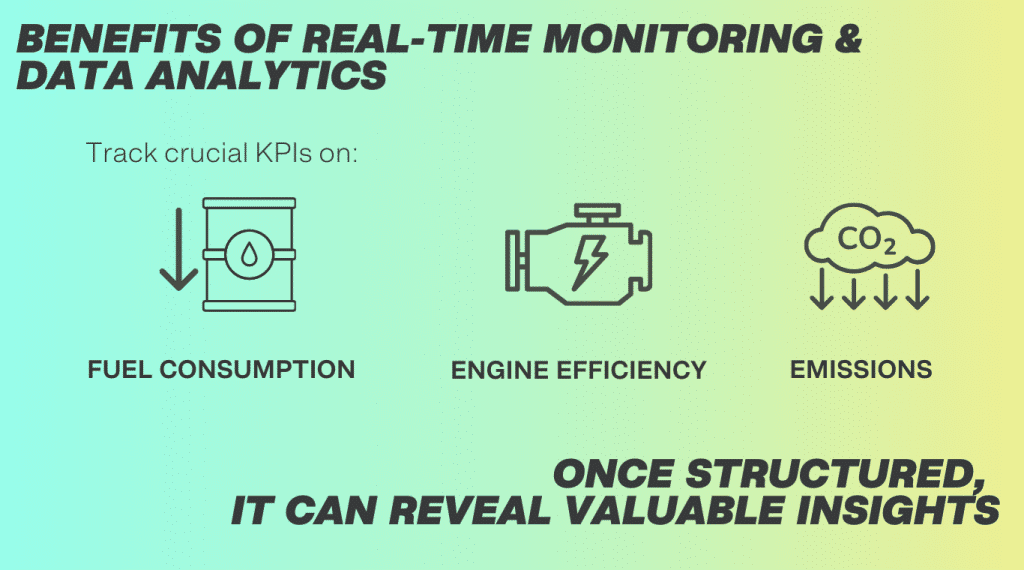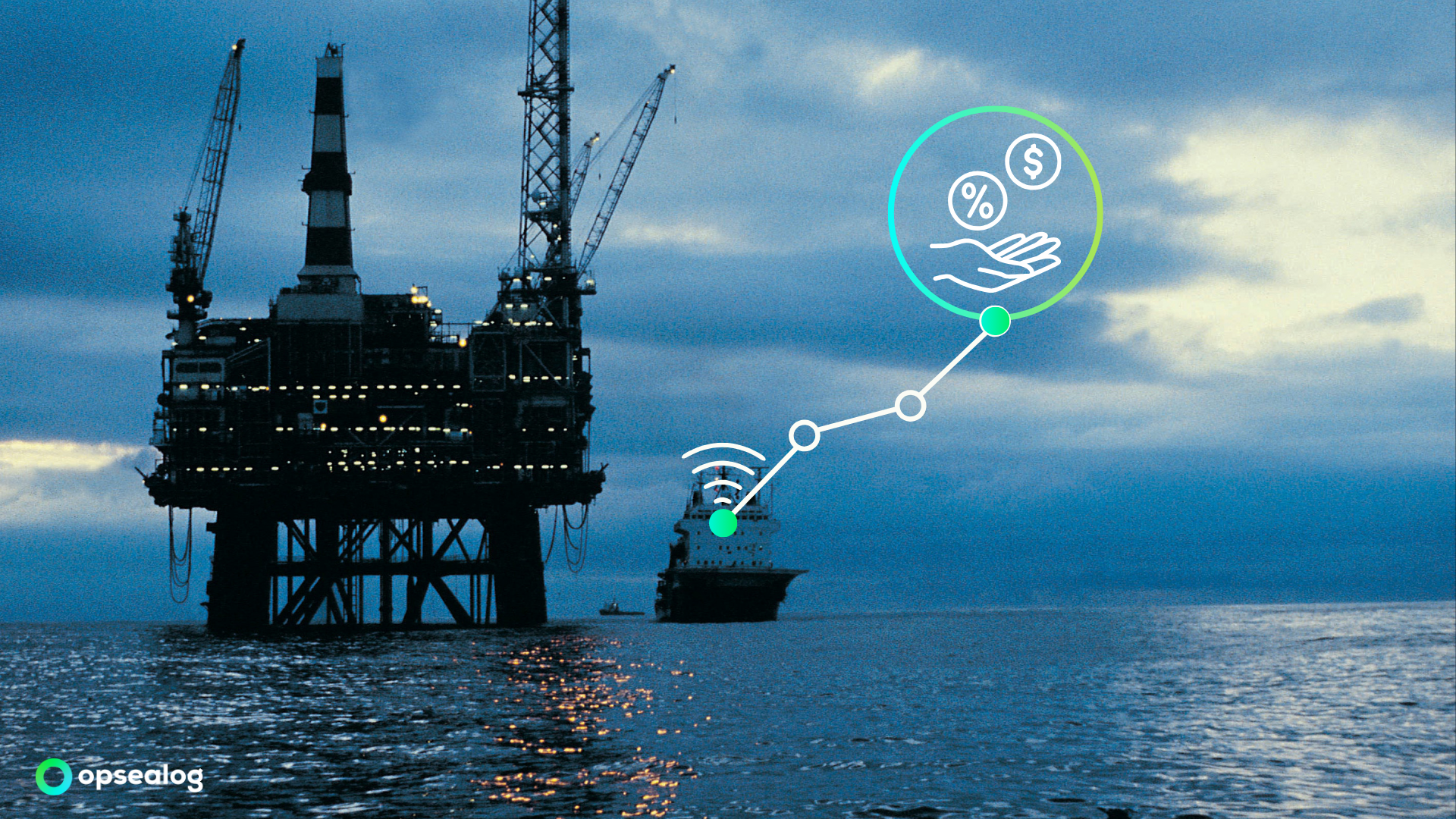Modern ships generate an estimated 20 gigabytes of data daily—that’s 20 gigabytes of opportunity. As highlighted in Inmarsat’s The Digital Wave report, the focus is shifting from just using data to considering how it might be useful for others. This shift in mindset brings the importance of data standards to the forefront.
Adopting data standards helps Offshore Support Vessel (OSV) operators improve data quality, enabling the use of digital solutions to automate data capture, processing, and compliance reporting. Digital e-reporting solutions that rely on standardized, high-quality data make it easier to visualize insights, share information, and build transparency and trust among stakeholders. Additionally, good data management supports evidence-based decision-making and risk management, allowing stakeholders to make informed decisions that can optimize performance, mitigate risks, and reduce operational costs.
The Role of Data Standards in Operational Efficiency
By adopting data standards, OSV operators can streamline their operations, making data capture and processing more efficient. This leads to quicker decision-making, reduced administrative workloads, and improved overall performance. Data standardization offers a notable benefit: real-time data sharing. Although currently limited, this trend is expected to grow as more vessels are equipped with connected communication solutions.
When teams use standardized data, they only need to enter it once. From there, the system automatically shares it across multiple reports and uses it for analysis. This automation frees up crew time, reduces the potential for human error, and allows the crew to focus on more value-added tasks.
– Improving Performance with Data-Driven Insights
With consistent data in hand, shipowners can monitor their operations more effectively, tracking vessel performance over time. Historical data is especially valuable, as it provides a deeper understanding of long-term trends and operational changes. For instance, by monitoring parameters such as speed, route deviations, standby times, engine configuration, and maintenance records, operators can pinpoint the reasons behind issues like high fuel consumption and identify opportunities for improvement.
Real-time monitoring, paired with predictive analytics, empowers operators to track key performance indicators (KPIs) such as fuel consumption, engine efficiency, and emissions. By analyzing this data, operators can make data-driven decisions, implementing targeted improvements to optimize fuel efficiency, reduce emissions, and enhance overall vessel performance.

Additionally, data-driven technologies like geo-fencing can alert crews to special environmental zones, helping them comply with stricter regulations in sensitive areas. This enables operators to meet Environmental, Social, and Governance (ESG) standards while minimizing environmental impact.
– Predictive Maintenance and Extended Asset Lifespan
One of the major advantages of data standardization is its role in enabling condition-based maintenance. With predictive analytics, operators can detect potential equipment performance issues before they escalate into significant failures. This proactive approach helps reduce downtime, extend asset lifespan, and improve overall operational reliability.
Additionally, with the growing pressure on companies to report their ESG performance to stakeholders, unified data standards can simplify the reporting process. Digital reporting solutions ensure that the necessary data is available in the correct format, making it easier to meet industry-wide standards. This enables greater transparency across the sector and facilitates the consolidation of industry data for benchmarking purposes.
– Enhancing Charterer and Operator Collaboration
Data analysis doesn’t just benefit shipowners—charterers also stand to gain significantly. Since charterers typically bear the cost of fuel, the insights derived from enhanced data systems help them optimize operational costs by improving fuel efficiency. Through digital systems, charterers can ensure the right vessel is used for the right task and that it operates at peak efficiency.
Having accepted reporting standards also facilitates collaboration between shipowners and charterers. It provides a clear, objective basis for assessing performance and contract compliance. Data analysis can show whether performance clauses in charter party agreements—such as those related to fuel performance, maintenance, and crew management—are being met. Shared data standards help both parties identify the root causes of issues like abnormal fuel consumption and assess whether operational practices or technical issues are to blame.
– The Strategic Value of Industry-Wide Data Standards
Industry-wide data standards have long-term strategic value. By developing standards through collaborative consensus, companies can address larger, forward-looking goals, such as decarbonization, while benefiting from technological advancements like artificial intelligence (AI).
These standards lay the foundation for future advancements, ensuring that the maritime industry can continue to innovate and improve, creating more efficient, sustainable operations for the future.
Fostering a Digital Culture: The Jackson Offshore Case Study
Embracing a digital culture within a company brings immediate benefits, while also preparing for future collaboration and e-reporting norms in the industry. Adopting a digital mindset enables companies to understand what data they collect, how they collect it, and how they can analyze it effectively.
A prime example of this transformation in practice is Jackson Offshore (JOO). By integrating Opsealog’s performance-building platforms, JOO has significantly boosted its operational efficiency. Traditional manual data entry using Excel spreadsheets has been replaced by digital reporting aboard JOO vessels, drastically reducing the time spent on data entry.
This shift to digital has created a smoother flow of information, allowing JOO to leverage operational and technical insights for better analysis. The result? Performance improvements, such as optimized engine use, have provided JOO with a substantial competitive edge in the market.
As more companies like JOO embrace digital solutions, they enhance their operations and prepare for the industry-wide changes on the horizon.
The adoption of data standards in the maritime industry is no longer optional—it is becoming essential for operational success, cost optimization, and sustainability. By embracing data-driven insights, predictive maintenance, and unified reporting standards, companies can significantly improve their operational efficiency and environmental performance.
Digital transformation is a journey that pays immediate dividends while setting up companies for success in the evolving maritime landscape. Those who lead the way in adopting data standards today will be well-positioned to thrive in a more collaborative, efficient, and sustainable industry tomorrow.
Download our latest White Paper: Creating Value from Data Standardization

